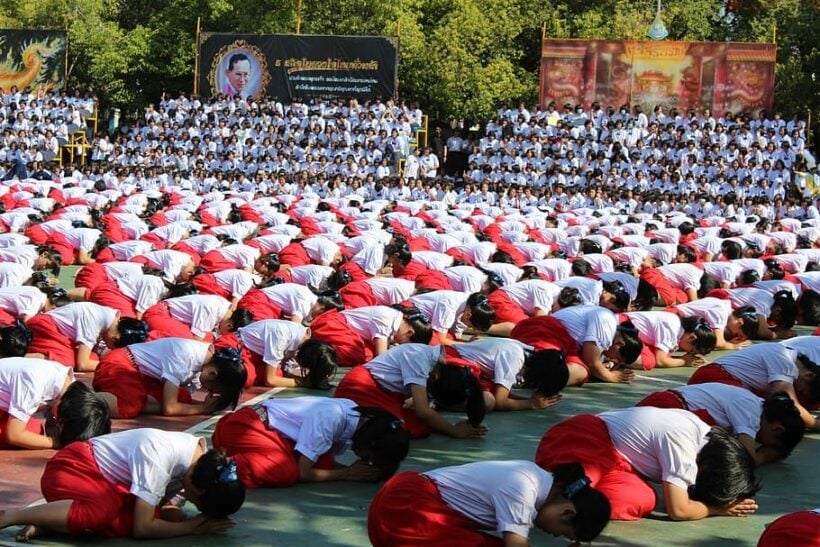A synopsis of Thailand’s educational system

Many expats who decide to settle in Thailand are curious about the public schools’ status. As Thailand is a popular destination for many worldwide, those with kids may be looking to immerse their children in the culture. So, enrolling them into the country’s government-sponsored schools may be an option.
However, further research into this reveals that the quality of education in Thailand’s schools may not be what some parents are expecting. WhileThailand is full of tropical coastlines and a rich, cultural history, its public school system may not be as glamorous, despite the proliferation of international schools in recent years.
But, depending on what your goals are for your child, many expats do decide to enroll their children in a Thai public school. The reason? To learn the culture and language. And, if you are only looking for that, it is a good idea.
However, such cultural differences include corporal punishment (although it is technically illegal), rote learning (learning by memorising), and the absence of supported, individual, critical thinking. To be fair, the Education Ministry says it is taking action against such rote learning styles, by saying it is revamping its curriculum.
As the teaching methods are, indeed, outdated, younger children who do enroll in a public school will almost certainly learn the Thai language. This is due to the substantial research that points towards children learning languages significantly easier than adults. As the common saying goes, ‘children’s minds are like sponges.’

While the country does boast a high literacy rate at 96.7%, Thai students scored below the global average on PISA tests in 2014, ranking 35th out of 40 countries. Moreover, the country’s English proficiency rates have been falling for the last 3 consecutive years. According to the annual English Proficiency Index, by the global education company EF Education First, the 2020 report was dismal at best. Thailand’s ranking dropped from 74 to 89 out of 100 countries last year. And, last year saw Thailand ranking 7th in Southeast Asia, in its English literacy rankings. The Philippines, Singapore, Malaysia, Vietnam, Indonesia, and Cambodia all ranked higher than Thailand. Furthermore, the country ranked 20th out of the 24 Asian countries overall.

One of the main questions is ‘why’? Especially when Thailand continues to be a top destination for foreign tourists. Thus, the more touristy locations are surely to feature more Thais who are picking up English while interacting with tourists. While this may be true, it doesn’t compensate for the learning of English in public schools, especially in rural areas.
While the government has invested generously in public education, its schools nationwide are failing to measure up to global academic standards across the board. Many citizens, however, say the governmental bias is a large part of why the system is failing its students. From the widely-accepted cheating on exams, to rote-style teaching methods, there are multiple reasons cited as to why the educational system is lacking.
Although all Thai children were guaranteed an education under the 1999 Education Act, many say rural areas are not given appropriate funding. As the government has been accused of dividing educational funding unequally, those students who already have a high likelihood to succeed, receive more funding. Thus, smaller and more rural schools are left out. Moreover, the current curriculum has been in use since 2008, with only minor changes. And, the 2008 curriculum was only minorly edited from the 2001 curriculum. One of the many criticisms of the curriculum includes focusing on outdated industries and skills.

Consequently, after-school tutoring and “shadow education” systems have been on the rise due to parents losing trust in the public education system. But, one of the many attributes of Thai culture is that of its citizens’ headstrong determination. Although the public school system may be lacking, parents are taking matters into their own hands, with success on their minds. This fight towards improving education may mean that students will have more opportunities to learn.
Regardless of what your goals are for your children, enrolling them in a public school in Thailand certainly is beneficial for learning the language, making friends and learning the culture. Furthermore, Thai school is very inexpensive compared to international schools. And, it can be said that young children may benefit more from a Thai school than older kids, making it truly an individual decision on the parents’ part. If you decide to enroll your children in an international school, we have a simple guide that can help you choose a school wisely.
Latest Thailand News
Follow The Thaiger on Google News:


























